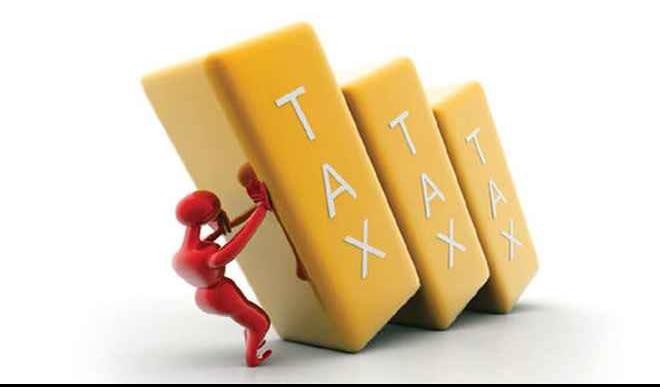In 2020, Nigerians will pay more in taxes given that there are a couple of increases in some taxes and introduction of some new ones.
These taxes include the VAT by the Federal Inland Revenue Service (FIRS), electricity tariff in April, communications tax and the return of tollgates taxes, which analysts, although believe will increase FG’s revenue base, say the increased tax rate would impact negatively on the income of average Nigerians especially if the taxes are not judiciously utilized.
FG had proposed an increase in VAT from 5 percent to 7.5 percent and the increase, according to Economists, would discomfort a many Nigerians as the prices of goods and services will jump.
Also the ministry of Power in 2019 had disclosed that there is a need to increase the electricity tariff, which might make Nigerians start paying more on electricity supply.
The Minister of Power, Saleh Mamman, stated that the hike was inevitable due to the rising cost of electricity generation in Nigeria, but Nigerians are already complaining that they pay so much for electricity and get so little, and to sustain their businesses they have to rely on generators and other forms of power supply.
The Senate is also in the process of seeking a legislative action to impose a 9 percent tax on Communication Services.
The communication service tax shall be levied on Electronic Communication Services like Voice Calls; SMS; MMS; Data usage both from Telecommunication Services Providers and Internet Service as well as Pay per View TV Stations.
Also, the Federal Government had announced plans to ensure the return of toll gates on federal highways in the country, and analysts believe the resultant effect will increase transport fare across the country.
Speaking with Daily Trust, Professor of Development Economics, University of Abuja, Prof Sarah Anyanwu said the increase in taxation would automatically lead to hardship because the level of the increase is not commiserate with the salary increment for civil servants (minimum wage) even as many who are not civil servants are facing retrenchment daily in the private sector.
She said citizens were paying more from their salaries, adding that the bargaining power of the people is declining.
Prof Anyanwu noted that with the rising inflation rate, more hardship will be experienced.
She said the three tiers of government have a long list of their various sources of revenue but those sources have not been tapped, stressing that concentrating on increasing the tax rate was only one way of increasing revenue.
She expressed worry that Nigerians still do not trust government in judiciously utilising the taxes collected, adding that even the tax offices do not have enough manpower for coverage of the taxable people.
She maintained that the government lack facilities, logistics, and some are not trustworthy because they falsify data in terms of tax clearance while many citizens have not been captured.
An Abuja based Economist, Samson Simon Galadima, said there were too many taxes meted on Nigerians, stating that Nigeria has more than 100 different taxes.
He noted that in as much as FG wants to increase taxes given that the country has one of the lowest tax to GDP ratios in the world, the multiple taxes will not guarantee more tax revenue, but encourage those paying to begin avoiding to pay them.
He said some of the countries in the world that have few taxes generate high tax revenue to GDP ratio.
He also expressed worries that because there were too many leakages, inefficiencies and corruption in the tax system, the efficiency of the tax collection will not be achieved.

 Join Daily Trust WhatsApp Community For Quick Access To News and Happenings Around You.
Join Daily Trust WhatsApp Community For Quick Access To News and Happenings Around You.


